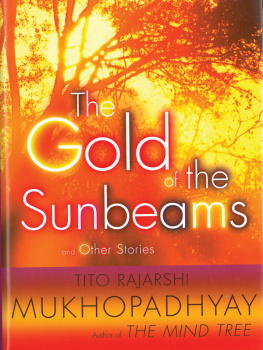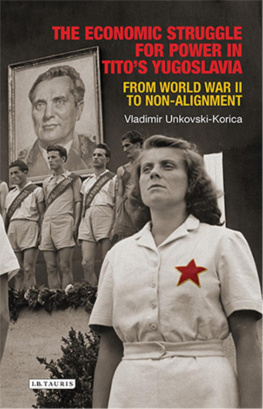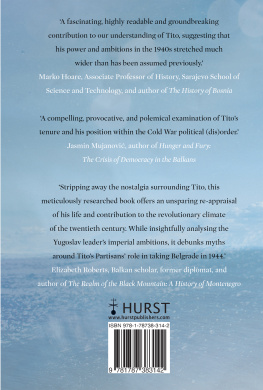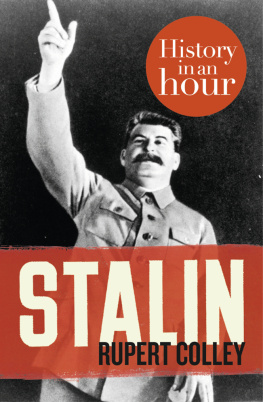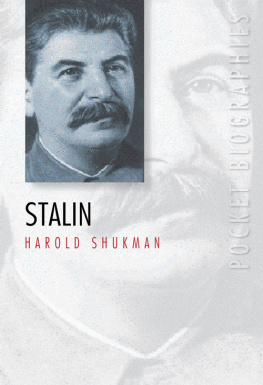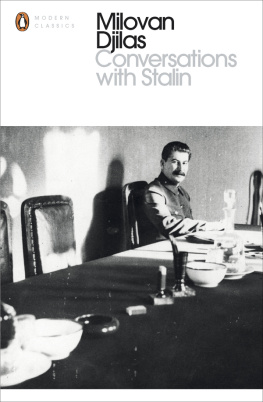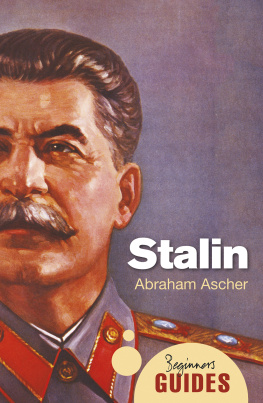This edition is published by ESCHENBURG PRESS www.pp-publishing.com
To join our mailing list for new titles or for issues with our books eschenburgpress@gmail.com
Or on Facebook
Text originally published in 1953 under the same title.
Eschenburg Press 2018, all rights reserved. No part of this publication may be reproduced, stored in a retrieval system or transmitted by any means, electrical, mechanical or otherwise without the written permission of the copyright holder.
Publishers Note
Although in most cases we have retained the Authors original spelling and grammar to authentically reproduce the work of the Author and the original intent of such material, some additional notes and clarifications have been added for the modern readers benefit.
We have also made every effort to include all maps and illustrations of the original edition the limitations of formatting do not allow of including larger maps, we will upload as many of these maps as possible.
TITO
BY
VLADIMIR DEDIJER
PROLOGUESerious things are involved...
MY BOOK is about Tito, and about Yugoslavia. To the extent that it has been possible, I have told it in Titos own words, for he has spoken often to me of his youth in his native village, of his years as a wandering mechanic in the workshops of Europe, of his struggles as a socialist for the rights of workers, of hunger strikes and of the many years he spent in different jails. I have filled the gaps from the words of his friends and associates, and from documents. And, of course, I have called upon my own recollections of events, for I have been, and remain, one who was a member of the movement which Tito leads.
I have known him personally for fourteen years, in some of the most crucial periods of his life and work: in the years before the Second World War, under the terror of the Karageorgevich dynasty, when he reorganized and prepared the Communist Party of Yugoslavia for the coming decisive events, I knew him those strenuous days when he used to hide for a few days in my home from the persecution of the police. I was with him all through the Second World War, when he started the war of liberation against Hitler and Mussolini.
I was with him on the most critical day of that war, in 1943, when the German High Command had decided to destroy us at any cost. An extensive plan had been drawn up, and in mid-May six German and five Italian divisions and one Bulgarian regiment surrounded our main forces. For our part, we had three divisions, including Supreme Headquarters on the border of Montenegro and Bosnia, in mountainous country carved by deep canyons.
The fighting was fearful. The Germans held their positions while we fought to get out, suffering incredible losses. Tito had selected the north for our breakthrough. Our brigades stormed through the first positions, then the enemy threw reinforcements into the threatened point. To succeed in our undertaking it was necessary to move more quickly in the mountainous country: Tito ordered all heavy armaments to be buried. Hunger was fierce. We ate our horses. The day of the decisive breakthrough was approaching.
In the evening of the 8 th of June, 1943, Supreme Headquarters set out up Mount Milinklada with its escort battalion of only two hundred men. The German positions were only two and a half miles away. As we neared them, the Germans opened fire from their mountain artillery. One shell hit our column, killing a comrade. Night was falling; we were moving through a forest and dared not have lights because the German positions were near. It had begun to rain. I was following Moa Pijade, an old Communist who had spent fourteen years in prison, and had been released just before war broke out. It had become pitch dark. At one point we lost contact with our column. We wandered through the forest. We dared not call. The Germans were near at hand. We lay on the ground trying to find the impressions of horses hoofs in the wet grass and mud, in the hope that thus we might find our comrades.
That night the Supreme Headquarters column split up. Tito reached the summit of Milinklada with a squad. In the early dawn the Germans began to shell our position. Stukas, Heinkels, and even Fieseler-Storch reconnaissance planes swooped down upon the mountain which is about a mile and a quarter long and about five hundred yards wide.
I was with Moa Pijade at the foot of the mountain when the German aircraft arrived. They dropped small ten-and twenty-kilogram bombs for living targets. Wave after wave came while the German infantry worked up to our positions. We were waiting for Tito to descend. But he did not come. I was waiting for my wife Olga, who had joined the Partisans and being a doctor headed the surgical team of the Second Division. She too was at the top near Tito with her unit.
About noon a courier came running to us with a letter.
Tito is wounded....The Germans are advancing. Send the escort battalion urgently.
We in the valley set off uphill. Suddenly a girl with tangled hair and flushed face shouted through the wood:
Comrade Vlado, Olga is calling you to carry her out. She has been seriously wounded.
It was nurse Ruka from Olgas unit. In a few words she told me what had happened. A bomb had hit them and Olgas shoulder had been torn away.
I hurried uphill. The wounded were coming down the slope in masses. The bombers appeared again. The Stukas were diving almost to the very tips of the huge beech trees and dropping heavy bombs. Ruka and a Bosnian fighter and I threw ourselves to the earth just as the first bomb exploded. The stench of powder suffocated us, daylight had turned into night. When the smoke cleared a little I noticed the Bosnian, a youth with large dark eyes, lying near me. Both his legs had been cut off. A stream of blood was gushing out and carrying away young green beech leaves which the explosion had torn from the branches. We couldnt help him. He was dying; he waved to me and whispered: Long live Stalin!
I hurried uphill. Beneath an oak, about twenty yards uphill sat Olga. Blood was flowing through the bandages that covered her whole shoulder. She looked at me with her deep dark eyes and tried to smile.
Dont be afraid, but the wound is serious.
A courier arrived and said that all German attacks had been repulsed and Tito was coming down. I found him down in the valley. His arm was bandaged. He stopped next to Olga and me while I was giving her spoonfuls of soup and asked:
How are you, Olga? Are you badly hurt?
It was getting dark. Our column fell in and we set off again. Olga was on horseback. I helped her stay erect. Hand grenades were crashing, German machine guns chattering in the growing darkness. The enemy threw reinforcements into the firing line. For nine days there was ceaseless fighting night and day. The enemy battalions and some of ours were intermingled so that the Germans occasionally opened fire on their own units. Finally we got through, but we had left the flower of our army in the field. There were numberless casualties. There was no time for operations. Tito was bandaged only once. I found him one night dictating a radiogram to Moscow about the fighting. He was lying near a tree in a fever. Nor could my wife be operated upon, because of the ceaseless fighting. Through heavy rainfall, partly on horseback, partly on foot, she endured for nine days. On the ninth day gas gangrene set in. She had to be operated on urgently in a hut. Her arm was amputated while German bullets struck the wooden walls.


